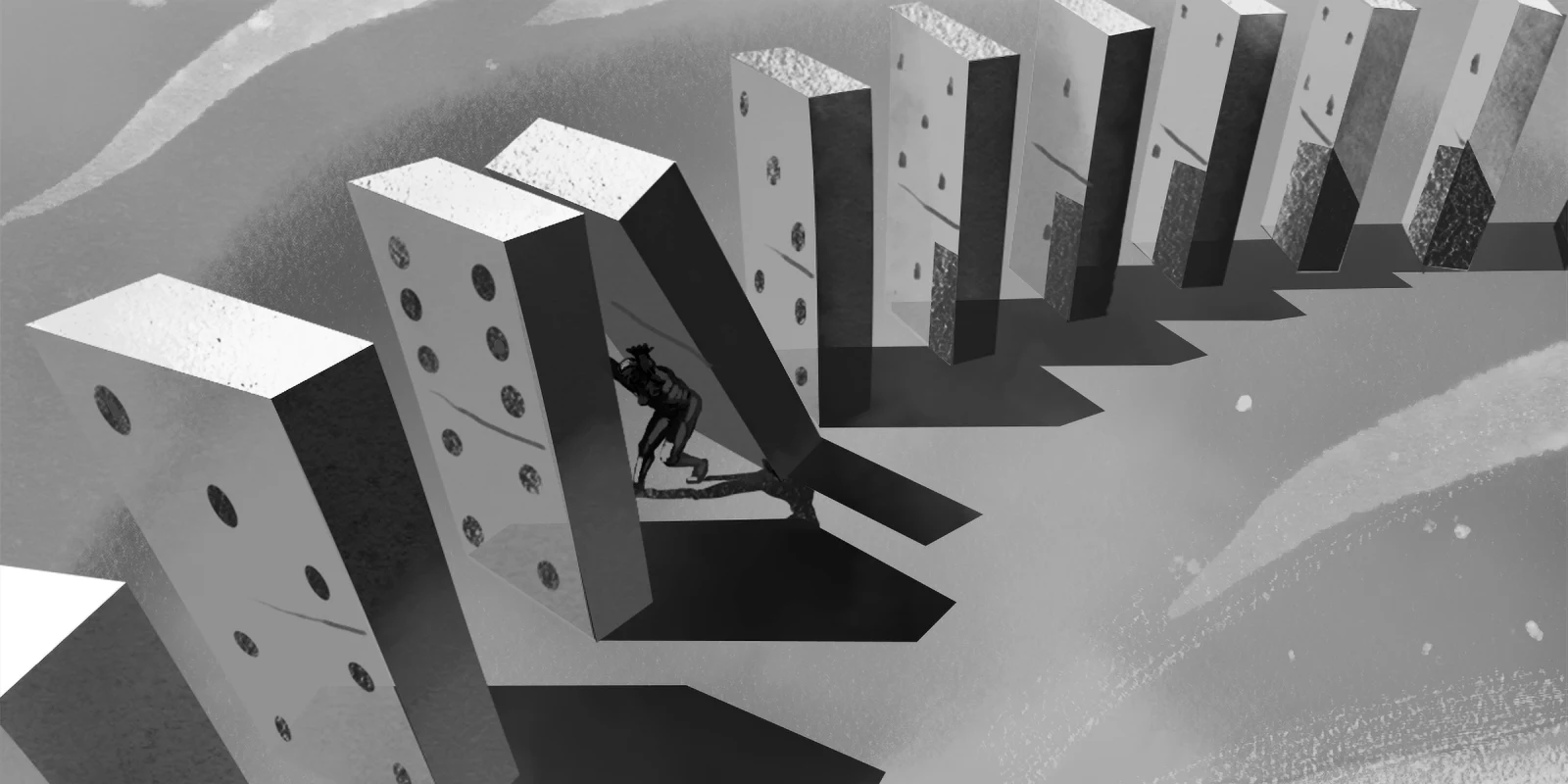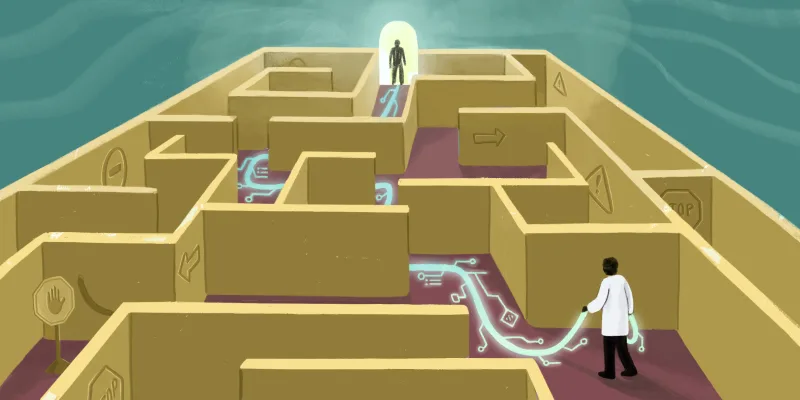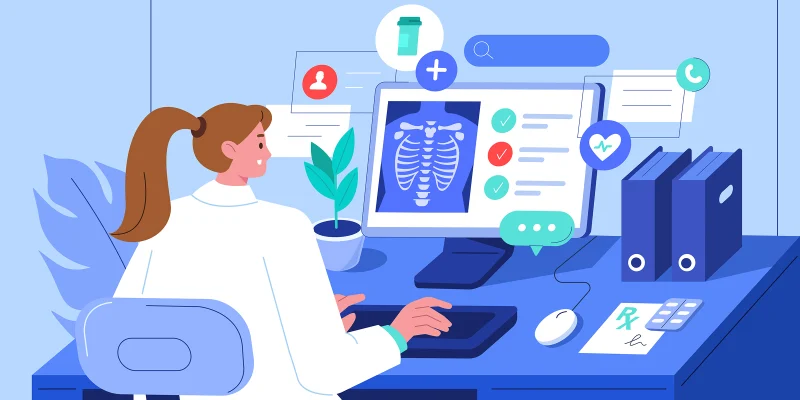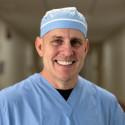“Guys, I’m getting nothing up here,” the anesthesiologist said — words you never want to hear in the OR.
The patient was a college-age male shot in the abdomen during a botched burglary. He had an entrance wound above and to the right of his umbilicus. There was no exit wound, but an x-ray showed the bullet lodged in a vertebral body. I was not the surgeon on call, but the on-call surgeon recognized the wound's gravity and called me in to assist. We worked the problem, but a through-and-through injury to the vena cava is challenging, especially in an outlying hospital with a limited blood bank. We attempted multiple maneuvers from the trauma book, but the wound's size and the front-and-back nature of the injury defeated us. I called the case a little after 6 a.m. — an hour before another busy workday began.
Losing a patient is never easy. Losing one on the OR table is especially devastating for a surgeon. You can't help but wonder if you should have done something different. And the questions that haunt me the most: Maybe I'm just not a good enough surgeon? Perhaps a better surgeon could have saved him?
Unfortunately, this was not the first time I had to deal with a death. I will never be good at it, but I have found a few things that help. After this particular case, I went to my office, drank a big glass of cold water and closed the door. Emotions have a physical component; I just sat and felt what I was feeling. The tightness of anxiety in my chest. The flush of humiliation on my face. The knot of shame in my gut. The shaky muscles as I came down from the adrenaline high. I just sat there with my emotions. I did not try to avoid or hide from them. I welcomed them, like old friends here to teach me a lesson. And yes, I shed a few tears for a young man I did not know but whose life ended too soon.
Later that day, I would go for a hard run and sweat off some of the pain associated with my OR defeat. I would write in my journal, talk with a physician friend, and meditate some more. I would get past it but I would never forget. I would never think about what happened without a little pang of shame, and, as always, the thought: Maybe a better surgeon could have saved him?
About 25 minutes after sitting down in my office, I took a few deep breaths, got up, and went back to work. After all, I had a full day of elective surgery ahead of me.
"We can have your room ready at 7:30," the nurse told me. We knew each other well from years of shared experience. "But, if you need a little time, that's OK too."
"No, I'm alright," I said. And I really was.
To experience a bad outcome in surgery and return to the same OR for another case is the ultimate mark of resiliency. People who don't work in the OR cannot understand the fortitude it takes, what it’s like to experience a tragic outcome and then return to that same room to operate again. It is a challenge only other surgeons can fully appreciate. And yet, that is what surgeons do, every day, all across the country. There is a lot of talk about resilience in medicine and how more of it is needed to deal with the burnout epidemic. There are programs to teach physicians how to meditate, drink plenty of water, eat well, exercise, write in a journal, and on and on. But, resiliency training is not enough because lack of resilience on the part of physicians is not the problem.
Physicians are resilient to a level that few outside the profession understand. We face horrific illnesses and injuries, challenging dilemmas, bad outcomes, distraught families, and death. We do it regularly. We do it under the time-consuming demands of EHR and the threat of malpractice. And we handle it. Physicians across America deal with these issues daily, and we do it well because we are resilient. It is not a lack of resilience that is tearing down physicians; it is bad systems.
Physicians have the resilience to deal with medical pressure. The problem is the increase in pressure from non-medical aspects of care. When will administrators start doing their job? When will they start supporting physicians, helping them focus on doing the work only physicians can do? It is past time for the next generation of health care management to unburden physicians from tedious, time-consuming, and wasteful tasks. We have an army of management personnel we did not have in the past. Between 1975 and 2010, the number of physicians in America increased by 150%, while the number of health care administrators increased by 3,200%. This exponential expansion in administrators in the face of physicians' linear growth should have alleviated the administrative burden on doctors. Yet most physicians feel the opposite is true; the increased number of administrators has created more busy work for us. Busyness leads to burnout, and physicians are busier than ever. But busier does not mean more effective. The administration of medicine has confused efficiency with effectiveness. Management wants health care to be efficient, but physicians measure their success based on how effective they are. And effectiveness and efficiency are often at cross-purposes — which creates a disconnect between the goals of administrators and physicians. That disconnect leads to bad systems and those bad systems are driving the burnout epidemic.
Health care organizations have been getting away with increasing demands on physicians for the last several decades because physicians are resilient. High demands to see more patients, do more paperwork, and transition to EHRs have been accompanied by minimal support. And doctors have done all of it because that is what patients needed them to do. But, we are now reaching the threshold of how much weight physicians can shoulder.
Systems need to support physicians rather than demand more from them. Resilience can only take us so far. What got us to this level will not elevate us to the next. Just because physicians' resilience has enabled them to meet unreasonable demands up to this point does not mean the system can expect us to continue endlessly. Systems need to shift. Rather than blaming physicians for the problem, health care needs to recognize the systems are the problem. If not, we’ll be hearing, “Guys, I’m getting nothing up here,” from the health care managers who have bled their medical staff dry.
How do you think health systems can better support physicians? Share your ideas in the comments.
Charles Black was born and raised among the cornfields of rural Iowa, but moved to the Colorado mountains as soon as he got the chance. He is a general surgeon, writer, photographer, outdoorsman, trail runner, and fires-side philosopher. His musing on medicine and life in general can be found here and you can view his photography here. Dr. Black was a 2019-2020 Doximity Op-Med Fellow and is currently a 2020–2021 Doximity Op-Med Fellow.
Illustration by Jennifer Bogartz







